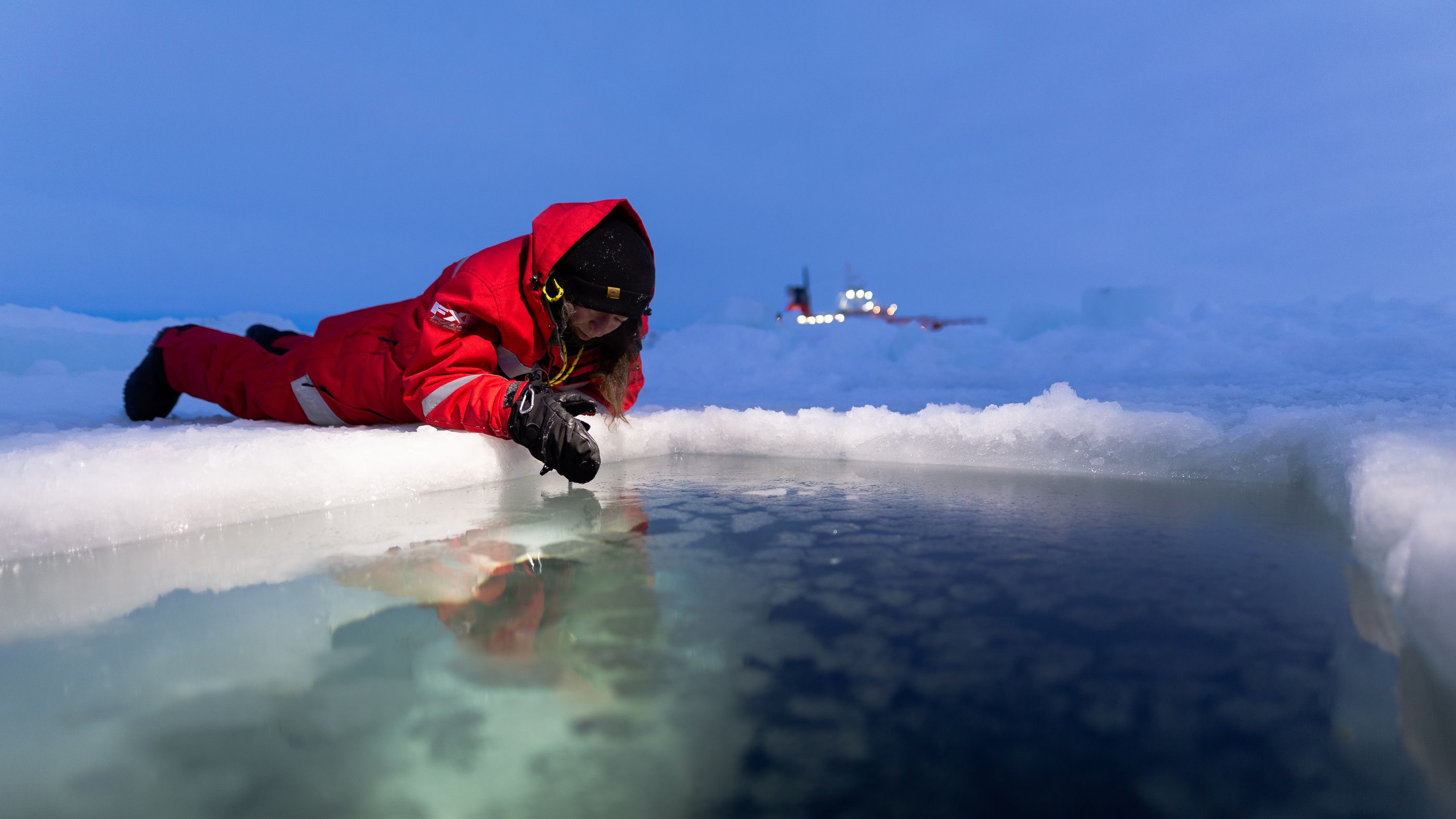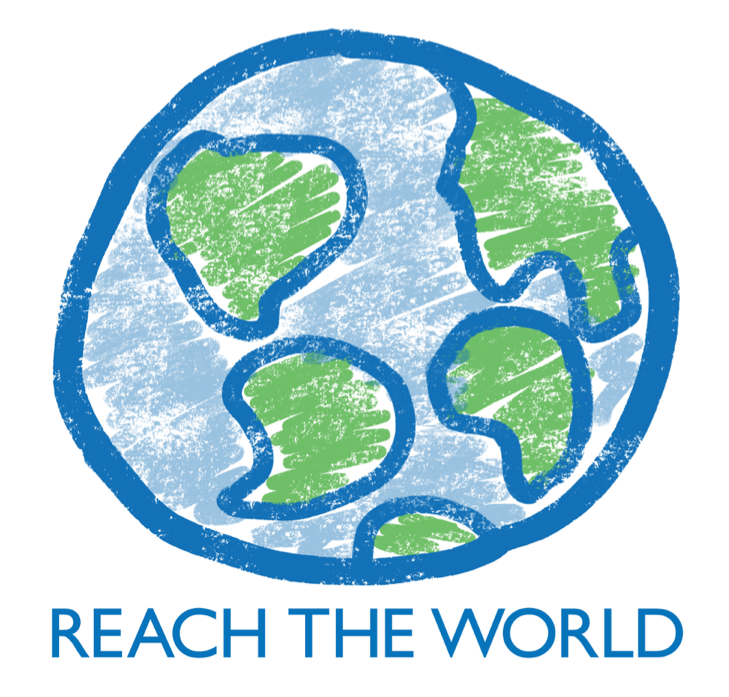How to Keep Learning About the Arctic

Thanks for following MOSAiC Monday! This will be the last MM produced as we transition to a MOSAiC Monthly newsletter. All you have to do is stay subscribed to the MOSAiC Monday newsletter to begin receiving MOSAiC Monthly. As we've said before, the MOSAiC expedition fieldwork may be over, but the real learning is just beginning as scientists begin to look through and analyze all of the data they collected. And we'll continue to develop new educational resources utilizing MOSAiC data, including new classroom activities and curricular units, ArcGIS StoryMaps, and more! Stay tuned also for a second MOSAiC planetarium show, which is being developed by filmmaker and MOSAiC participant Lianna Nixon and will capture the second half of the expedition. All new resources will be announced in the MOSAiC Monthly newsletter and posted on the main MOSAiC education web page.
Photo credit: Stefan Hendricks/AWI
If you want to continue your learning about the Arctic region, here are some resources you can explore:
Indigenous Canada: A Massive Open Online Course offered by the University of Alberta
Indigenous Canada is a 12-lesson Massive Open Online Course (MOOC) that explores Indigenous histories and contemporary issues in Canada. From an Indigenous perspective, this course explores key issues facing Indigenous peoples today from a historical and critical perspective highlighting national and local Indigenous-settler relations. Topics for the 12 lessons include the fur trade and other exchange relationships, land claims and environmental impacts, legal systems and rights, political conflicts and alliances, Indigenous political activism, and contemporary Indigenous life, art and its expressions.
Frozen in the Ice: Exploring the Arctic: A Massive Open Online Course offered by the University of Colorado Boulder
In this course, you’ll hear directly from MOSAiC scientists and Arctic experts as they describe why the MOSAiC expedition is so key for increasing our understanding of the Arctic and global climate systems and what kinds of data they will be collecting during MOSAiC on the ice, under the sea, and in the air. The course kicks off with content around Arctic geography, climate, and exploration history, and then walks learners through the basics of the components of the Arctic system: atmosphere, ocean, sea ice and ecosystems. You will also learn how the data collected during MOSAiC will be used to improve climate model projections. Finally, we will wrap up the course by exploring challenges the new Arctic faces, including how indigenous peoples in the Arctic are being impacted in different ways by a changing Arctic environment.
PolarTREC
PolarTREC has been around for over 10 years providing over 170 U.S. teachers a unique opportunity to work with scientists in the polar regions. Although the 2020 PolarTREC expeditions were postponed due to COVID, you can still check out the wonderful virtual educational resources they have available, as well as read blog posts from MOSAiC PolarTREC educator Katie Gavenus.
Browse the PolarTREC Virtual Resources Collection
Check out Katie's photos from the MOSAiC expedition
Byrd Polar and Climate Research Center at The Ohio State University
The Byrd Center at OSU supports and promotes interdisciplinary polar and climate research and public outreach. In addition to doing research, the Byrd center also offers public lectures on climate and polar-related topics and has a great collection of educational activities and lessons for the classroom. Coming up on October 28th: Learn about the co-production of knowledge in the Arctic in a virtual seminar featuring Kaare Ray Sikuaq Erickson, the Outreach and Engagement Manager for UIC Science/Battelle ARO (Arctic Research Operations) in Utqiaġvik, Alaska.
More Arctic and Polar Research Networks and Institutions
Stay up to date on the current research being done in the Arctic with the Beaufort Lagoon Ecosystems project and the Local Environmental Observer (LEO) Network. The Beaufort Lagoon Ecosystems project uses diverse methods to study lagoons and other aquatic sites along the northern Alaskan Arctic coast. LEO is a network of local observers and topic experts who share knowledge about unusual animal, environment, and weather events. With LEO, you can connect with others in your community, share observations, raise awareness, and find answers about significant environmental events. You can also engage with topic experts in many different organizations and become part of a broader observer community.
The National Snow and Ice Data Center (NSIDC) is another great place to learn all about Earth's cryosphere and the polar regions - track daily sea ice extent in the Arctic, find educational resources, access cryospheric data, and more.
 Follow MOSAiC with Reach the World through November
Follow MOSAiC with Reach the World through November
You can continue to connect virtually with MOSAiC team members through November with our friends at Reach the World and Exploring by the Seat of Your Pants!
We'll post the schedule of the MOSAiC team members' live video calls through the end of November on the main MOSAiC education page - be sure to check back often! Educators, you can also sign your classroom up to follow the MOSAiC expedition with Reach the World and stay up to date on the latest happenings.
Go to the Reach the World MOSAiC Program Page
*New* Experience MOSAiC in 360 Degrees: Step into a Lab on the Polarstern
What's it like to work in a lab on board the Polarstern in the middle of the Arctic Ocean?
Find out in this new 360-degree video!
Check out all MOSAiC 360-degree videos here.
 We Want Your Feedback!
We Want Your Feedback!
The MOSAiC Monday production team would like your feedback on how you've engaged with MOSAiC Monday and MOSAiC educational materials over the past year. Your feedback is instrumental in helping the CIRES education & outreach team develop the best free, high quality, and relevant educational resources for students, educators, and the public that we can, and for securing funding to do so.
Share your MOSAiC Monday feedback by filling out this short survey
